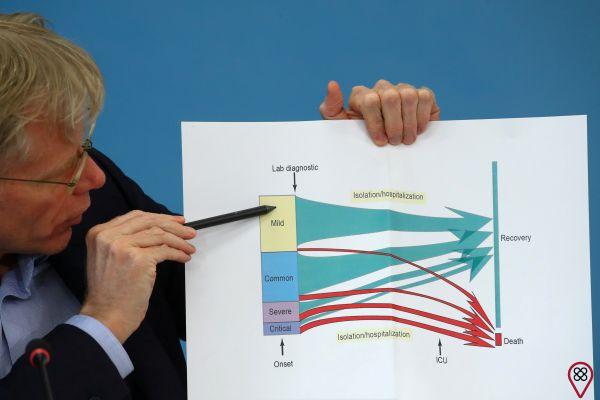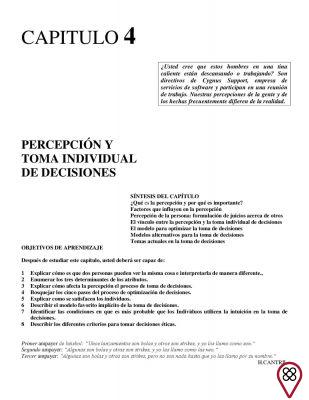“It is necessary to know how to suffer what cannot be cured.” -Osório
Every time we discover that we have been betrayed by someone to whom we offered the best of us, we tend to wonder what we did wrong and when we made a mistake that served as a justification for a person to betray us. This is bad, because it terribly lowers our morale, it often leads us to doubt whether we deserve someone's love or if we are going to get them to love us in an honest and sincere way. Understanding the fact, however, helps to recover our self-esteem and faith in people, because what leads someone to betray does not necessarily follow the linear model of cause and effect.
One of the hardest things to deal with is finding out that we have been betrayed by a person to whom we have devoted time and love faithfully and sincerely. And the greater the level of dedication, loyalty and consideration, the greater the pain and shock in the face of the harsh reality of feeling betrayed. This is because we are taught early on that, if we act in a certain way, we receive a certain response; and, by doing something else, the result will also be different. It's not like this? But things don't work within this pragmatism, with a script applicable to each context. They are at the mercy of the characteristics, idiosyncrasies and objectives of those involved, and can open up a very wide range of possibilities.

If we stick to the idea of cause and effect, when a certain type of behavior invariably leads to the same response, we will have found the quickest formula to believe that some people are born doomed to failure or that there is no way to change the most feared of outcomes, since it is something intrinsic to the nature of the person. However, it must be borne in mind that, most of the time, the way people act towards us is not directly related to the way we act towards them. In other words: the fact that we act in a noble way with someone does not assure us that we are contemplated with the same nobility, as we hope. And even when we leave no doubt about how trustworthy we are, we have no guarantee that the other will not betray our trust.
Nor should we feel that someone has betrayed us for not being good enough. This will cause your morale to go down, fueling a feeling that we are unable to meet our partner's expectations, whether for aesthetic aspects, sexual performance, social status or some quality we believe we don't have. If that were the case, charismatic, successful people or those with recognized moral qualities would never be betrayed. And what is discovered by analyzing their trajectories is that this is not real. We can then conclude that the fact that someone betrays us does not necessarily depend on the way we think, act or demonstrate how important it is to us. This has much more to do with the worldview she fears than what she considers important. This means that you can be the most loyal person in the world, the smartest, the best sex partner, extremely dedicated and caring that, as a simple matter of values, nothing will stop you from being betrayed. It is worth mentioning that it is also useless to try to establish a “guarantee contract” in which it is agreed: “I act like this with you and you promise me not to do such a thing to me.”

As tough as it sounds, that's not how it works. Knowing this, we have already substantially reduced suffering in relation to unmet expectations. So, we wonder how to escape the suffering of being betrayed “cruelly and coldly” by those we love so exclusively and passionately? This question is difficult to answer with a rule that applies to all cases. In fact, there is no single answer. Although many adopt a set of postures in an attempt not to collapse like a house of cards. Are they:
– pay attention to the history of the most common reactions offered for different situations;
– observe how the other thinks about concepts considered important for the maintenance of a relationship, such as loyalty, sincerity and mutual respect;
– be aware of the coherence between speech and action, that is, if what is said reflects the way the person acts with others and not just how he strives to demonstrate with whom he is relating;
– to analyze the critical sense of the other to verify if the values supposedly presented in the speech are present in practice. It is not difficult that, even due to intellectual incapacity or lack of knowledge, the person has a distorted view of reality and covers other values that he does not have and cannot even perceive that he himself does not have.

We could extend this list quite a bit, depending on how insecure one is looking for such safeguards, only to discover how difficult it is to obtain assurances that prevent the painful confirmation of betrayal. Firstly, because it is almost impossible to put the other on “stand by” until the history that prevents future disappointment is obtained. “The heart has reasons that reason does not know”, is that not how they say? Are we convinced that we will not get involved with someone until there is certainty that we will not be deceived? Knowing the lifestyle and values of the other can reduce the risks of disappointment, but it does not eliminate them because there are those who apply the maxim of “do as I say, but not as I do”, consciously or not. . Those who do it unconsciously often lack the critical sense to realize how inconsistent they are in what they say they do and what they actually do. Conscious people, on the other hand, can bring personality characteristics such as arrogance, vanity or arrogance towards others, which gives them self-conferred prerogatives that do not extend to others with whom they relate. A typical illustration would be the behavior of the “colonels” of the last century, who believed they could do anything, but were easily overcome by anger when they felt victims of the actions of those around them.
Being aware of the coherence between speech and action is only possible when the relationship is already underway. Under these conditions, it is unlikely that there will be sufficient exemption and independence to avoid suffering from discovering the other person's unwanted behavior. At most, the intensity can be reduced, depending on the stage of emotional and affective involvement. However, checking to see if the partner is aware of their inconsistencies only opens the windows of distrust to the other's behavioral boundaries, and this can make the relationship almost unbearable, as each new evidence can turn into clear signs of imminent suffering, leading the relationship to levels of stress that will not be able to be supported.
The conclusion reached, then, is that the risk will always exist, regardless of who you are, how you act towards the person you love, or what you offer in terms of dedication, loyalty and trust. Those who already have a history of guiltless cheating will do so, and those who do not do so out of habit — but do not react unequivocally to certain situations — may do so as soon as the opportunity arises, and then they will find a justification to placate their own conscience. . Those who are unable to distinguish between the essential and the superfluous will also do so, as they do not realize when they exchange what is most important for what does not go beyond a circumstantial and irrelevant moment in their lives.
You may also like
- What does it mean to dream of betrayal? Find it out!
- Is it possible to restore trust in the relationship? See in our article
- Keep your self-esteem and self-love: read and be inspired!
Finally, the only alternative we have to preserve our balance and our self-esteem, even in the face of the feared and destructive betrayal, is to be aware that the risk will never be away, because it will depend much more on the other person than on you. The important thing is not to blame yourself for the mistakes of the other, especially when your heart says that you didn't contribute to the fact and that you tried to do your part well. If there is one thing that is worth believing, it is that the loss tends to be greater for the other side because it is in more difficult conditions of recovery, since it does not exercise control over what it wants and, therefore, it will have less chance than you to find someone who makes you happy. If this applies to you, raise your head — even though you know it's going to hurt at first — and move on. Sooner than you think, you will find someone who deserves it.

























